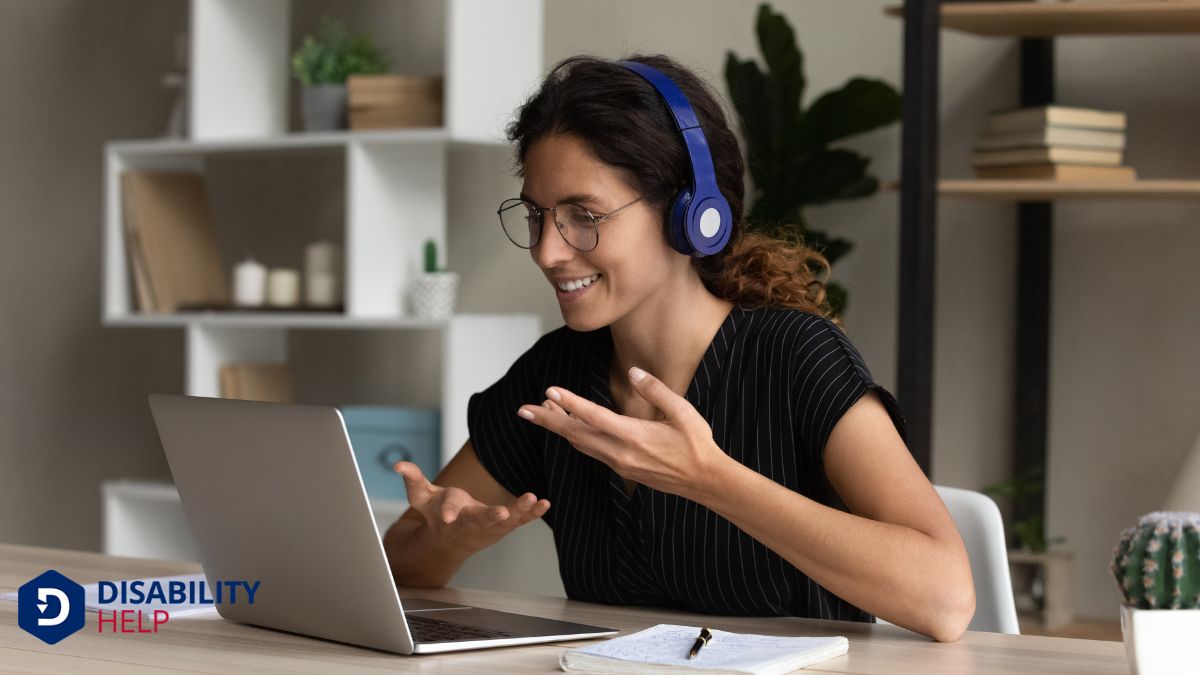We offer accommodationsModifications or adjustments in healthcare settings to support patients with disabilities. like flexible work hours and remote options to support neurodivergent employees, helping them work at their own pace and during their most productive times. Sensory-friendly environments reduce stress with adjustments like noise-canceling headphones and soft lighting. Clear communication is key, so we prioritize straightforward language and provide written summaries. Customized workstations tailored to individual needs enhance comfort and productivity. Explore more to discover how these adaptations create an inclusive workplace.
Key Takeaways
- Flexible work hours and remote options cater to neurodivergent employees' schedules and productivity needs.
- Sensory-friendly environments reduce stress by minimizing sensory overload through lighting and noise adjustments.
- Clear communication practices ensure instructions are straightforward, with opportunities for questions and feedback.
- Customized workstations and ergonomic equipment enhance comfort and productivity, tailored to individual needs.
- Access to quiet spaces and designated break areas supports focus and sensory management.
Flexible Work Hours and Remote Work Options

When we talk about accommodating neurodivergent employees, offering flexible work hours and remote work options is a game-changer. It allows us to acknowledge and respect individual needs, fostering an inclusive work environment.
Flexibility can reduce stress by enabling employees to work during their most productive hours, aligning tasks with their natural rhythms. This approach helps us retain talented individuals who might otherwise struggle with conventional schedules.
Remote work options can provide a comfortable setting where employees can control their environment, minimizing distractions and enhancing focus.
By embracing these accommodations, we show our commitment to understanding and valuing diverse work styles. It’s about creating a space where everyone can thrive, contribute effectively, and feel respected.
Together, we build a stronger, more innovative team.
Sensory-Friendly Work Environments
Creating sensory-friendly work environments is essential for supporting neurodivergent employees who may be sensitive to stimuli like noise, lighting, or crowded spaces.
We can start by evaluating our workspace for potential sensory stressors. Some employees might find fluorescent lighting harsh, so we should consider alternatives like natural light or dimmable lamps. Noise-canceling headphones or quiet zones can help reduce auditory distractions.
We should also think about the layout of the workspace. Offering options for working in quieter, less crowded areas can make a big difference.
Furthermore, having flexible seating arrangements allows employees to choose where they feel most comfortable. By being mindful of these aspects, we create a supportive environment where neurodivergent employees can focus and thrive.
Clear and Direct Communication Practices
Although communication styles vary, it’s crucial to adopt clear and direct practices to support neurodivergent employees effectively.
We should prioritize straightforward language, avoiding jargon and ambiguous phrases. When communicating, let's be concise and precise, ensuring instructions are easy to follow. Providing written summaries of verbal discussions can help reinforce understanding.
We should also encourage questions and provide ample opportunities for clarification without judgment. This practice fosters a supportive environment where neurodivergent employees feel comfortable expressing their needs.
Regular feedback sessions and open dialogue can help us identify and address any communication gaps.
Customized Workstations and Equipment
Let's explore how customized workstations and equipment can support our neurodivergent colleagues.
By incorporating ergonomic office furniture and assistive technology tools, we can create a more comfortable and efficient environment for everyone.
These adjustments not only enhance productivity but also promote inclusivity in the workplace.
Ergonomic Office Furniture
In our quest to foster inclusive workplaces, ergonomic office furniture plays an essential role in accommodating neurodivergent employees. By customizing workstations, we can address sensory sensitivities and physical comfort, contributing to a more supportive environment.
Imagine a workspace where adjustable chairs, desks, and lighting help reduce distractions and physical strain. These modifications aren’t just about comfort; they’re about creating spaces where everyone can focus and perform at their best.
For some, a chair with better lumbar support or a desk at the right height makes all the difference. Others may benefit from noise-canceling partitions or softer lighting.
Assistive Technology Tools
When it comes to creating inclusive work environments, assistive technology tools play a pivotal role in customizing workstations and equipment for neurodivergent employees. These tools can range from noise-canceling headphones to speech-to-text software, each designed to cater to individual needs. By integrating these technologies, we enhance productivity and comfort, enabling everyone to work to their strengths.
Let’s consider the impact of adjustable desks and specialized keyboards. They allow us to tailor physical spaces to reduce sensory overload and support motor skills.
It’s essential that we listen to our team members' unique requirements and provide tools that make their work experience as seamless as possible. By doing so, we foster a culture of acceptance and empowermentThe process of gaining control, authority, and power over one’s life, often used in the context of..., ensuring everyone can thrive.
Access to Quiet Spaces and Break Areas
Although many of us thrive in bustling work environments, neurodivergent employees often benefit from access to quiet spaces and designated break areas to help manage sensory overload and maintain focus.
These spaces provide a refuge from constant noise and movement, allowing us to recharge and return to work with renewed concentration. By offering such accommodations, we can create a more inclusive workplace where everyone has the opportunity to succeed.
Implementing quiet areas doesn’t have to be complex. Simple adjustments like noise-canceling headphones or a room with soft lighting and minimal distractions can make a significant difference.
It's about recognizing individual needs and fostering an environment that respects diverse working styles. When we prioritize these accommodations, we support our colleagues’ well-being and enhance overall productivity.
Training and Support for Neurodiverse Inclusion

To effectively support neurodivergent employees, we must embrace tailored learning methods that address diverse needs.
Let's also prioritize mentorship and peer supportA system where individuals with disabilities provide support and share experiences to help each othe..., ensuring everyone has access to guidance and encouragement.
Together, we can create an inclusive environment where neurodiverse individuals thrive.
Tailored Learning Methods
Understanding the unique needs of neurodivergent employees is essential for creating effective learning environments, so we must embrace tailored learning methods to secure their success.
Recognizing that everyone learns differently, we can provide customized training resources that align with individual strengths and preferences. This might include visual aids, interactive modules, or auditory materials to suit various learning styles. By doing so, we're not only enhancing comprehension but also fostering an inclusive atmosphere where neurodivergent individuals feel valued and supported.
Let's also consider flexible pacing. Allowing employees to learn at their own speed can alleviate unnecessary pressure and improve retention.
Open communication is key—encouraging feedback guarantees that adjustments can be made as needed, reinforcing our commitment to their professional growth and empowerment.
Mentorship and Peer Support
When we consider the importance of mentorship and peer support, it becomes clear that these elements are pivotal in fostering an inclusive workplace for neurodivergent employees.
They provide guidance, understanding, and a sense of belonging that can make all the difference. By connecting with mentors who understand neurodiversityThe concept that neurological differences, such as autism or ADHD, are natural variations in the hum..., employees gain valuable insights and strategies tailored to their unique needs.
Peer support creates a community where experiences are shared, and challenges are met with empathyThe ability to understand and share the feelings of another, particularly important in understanding... and understanding. We should encourage open dialogues to demystify differences and promote acceptance.
Through structured mentorship programsPrograms that pair individuals with disabilities with experienced professionals to provide guidance ... and peer networks, we can build bridges that enhance collaboration and innovation.
Let’s recognize the power of support systems in revealing the potential of neurodivergent team members.
Conclusion
In embracing neurodiversity, we can create a more inclusive and supportive workplace for everyone. By offering flexible work hours, sensory-friendly environments, and clear communication practices, we make it easier for neurodivergent employees to thrive. Customized workstations, access to quiet spaces, and thorough training further support this goal. Let’s commit to fostering an environment where all individuals feel valued and understood. Together, we can guarantee that everyone has the opportunity to succeed and contribute meaningfully.






